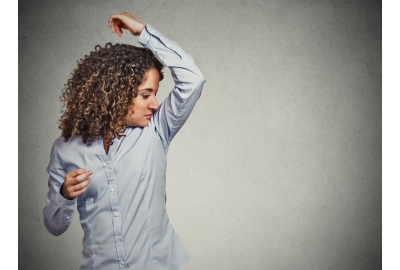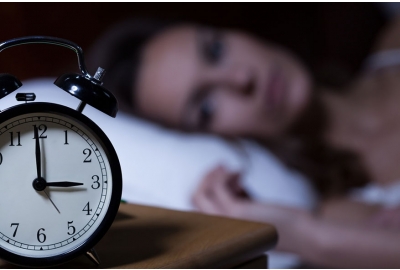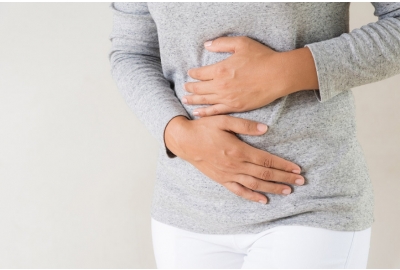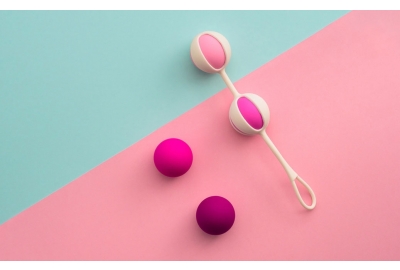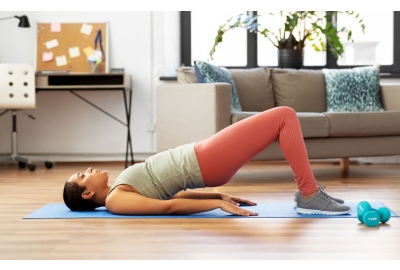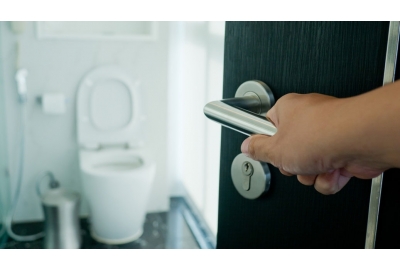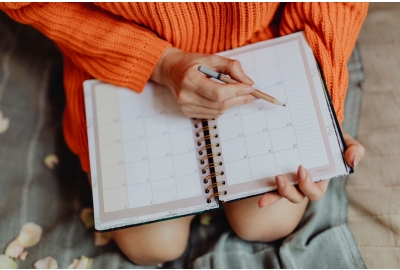Menopause and Body Odor: 4 Things to Keep in Mind
You knew about menopause and hot flashes, and menopause and weight gain, and even menopause and bloating. But do you know about menopause and body odor? That's right – menopause can cause you to smell not-so-sweet as your body transitions. Below, we explain the link between menopause sweats and body odor.
5 years ago
7 Symptoms and Signs of Prolapsed Bladder
If you feel like your bladder is falling out of your body, you could have a surprisingly common yet often overlooked condition known as bladder prolapse (cystocele). While it doesn’t actually put you at risk of losing your bladder — trust us, we checked with the experts — the ailment can cause a whole host of uncomfortable side effects that shouldn’t be ignored. In this guide, we’re going over the most common signs and symptoms of prolapsed bladder to help you manage diagnosis and treatment.
5 years ago
What Is Nocturia? 7 Ways to Manage Nighttime Incontinence
You’re sleeping peacefully, having pleasant dreams — then, you wake up to go to the bathroom. Maybe it happens again, and perhaps even a third time, before you finally drag yourself out of bed in the morning, exhausted from your midnight bathroom breaks. If you’re asking yourself, ‘why do I pee so much, especially during the night?’, nocturia might be the answer. Nocturia, also called frequent urination at night, is a common condition, but that doesn’t mean you have to live with the discomfort. Read on to get answers to all your nocturia FAQs and to learn the best tips for managing nighttime incontinence.
5 years ago
Menopause and Bloating: 4 Ways to Find Relief
As if you weren’t already dealing with enough during menopause, you’ve now begun bloating for apparently no reason. Bloating is a very common side effect of menopause, but that doesn’t mean that it’s any less annoying and uncomfortable. If you want to know what’s causing your menopause bloat and what you can do about it, read on to get some answers.
5 years ago
Kegel Ball Exercises: How to Use Kegel Balls
If you’re wondering “why do I pee so much?” or experiencing pain during intercourse, the answer might be weakened pelvic muscles. Like your other muscles, pelvic muscles often weaken as we age, especially if we don’t purposefully exercise them. Pelvic muscles may also lose strength following a significant life event, such as childbirth or gynecological surgery.
5 years ago
What Is Pelvic Floor Therapy?
We all know physical therapy can be used to treat common conditions, like a torn meniscus or osteoarthritis, but did you know it’s also useful in the treatment of urinary incontinence, painful sex, and endometriosis? The systems that scaffold our sexual and urinary health are made up of muscles, just like those in the legs, back, and neck. And muscles are surprisingly resilient and adaptable, so they can be trained in a variety of ways.
5 years ago
What Is Considered Frequent Urination?
You feel like you have to urinate a lot compared to other women you know. Don’t worry! We know the feeling. So, just how many bathroom breaks in a day is too many? In this guide, we’re answering all your questions about going to the bathroom too much, from what’s considered frequent urination to what you can do to stop it. Here’s what you need to know about frequent urination.
5 years ago
Overflow Incontinence: Symptoms, Causes, and Treatments
Have you ever woken up from a good night’s sleep, only to find that you’ve wet the bed without realizing it? Or even worse, have you gotten up from your seat at a restaurant only to discover that you’ve got a damp patch on your pants? Incontinence affects adults, especially older adults, and can seriously hamper your lifestyle. But you don’t have to live your life in fear of incontinence, and there are steps you can take to reduce your symptoms. Read on to discover what you need to know about overflow incontinence and what you can do about it.
5 years ago
Bladder Training 101
You have to use the restroom all the time, and you're tired of spending what feels like your entire day in the bathroom. Know the feeling? Fortunately, you don’t have to resign yourself to living the rest of your life on the toilet — bladder training can help you strengthen your body and mind to prolong your wait times between restroom visits. Here are seven steps to help you get started with bladder training:
5 years ago
All About Pelvic Floor Exercises for Urinary Incontinence
When we think about the complex systems that make the digestive and urinary tracts work like they should, we rarely think about muscles. We blame leakage and dysfunction on an overactive bladder or grumpy bowels. But the truth is that the muscles play a massive role in continence. Strengthening them can do wonders for urinary incontinence (UI) and lead to a host of other positive outcomes, from preventing injury to enhancing sexual arousal.
In addition to pairing you with the best incontinence products, Sofia & Grace is here to empower you to attack UI head-on. Understanding the role of the pelvic floor muscles is a great way to arm yourself with the knowledge you need to stop incontinence from getting in your way.
5 years ago
